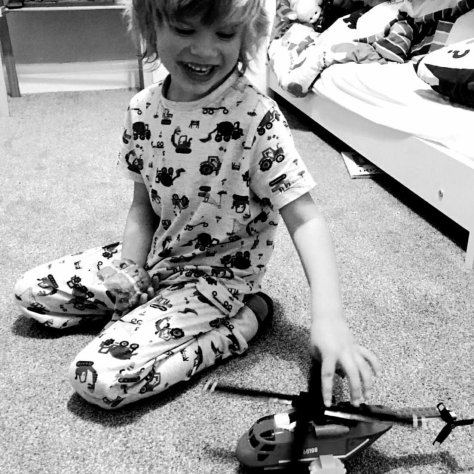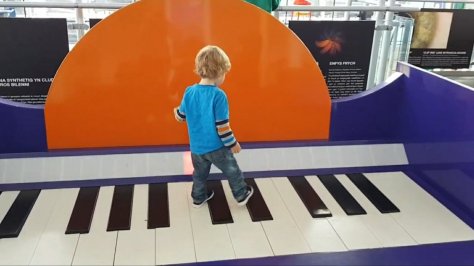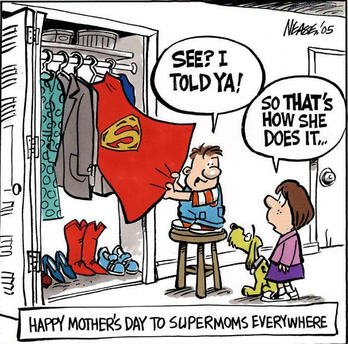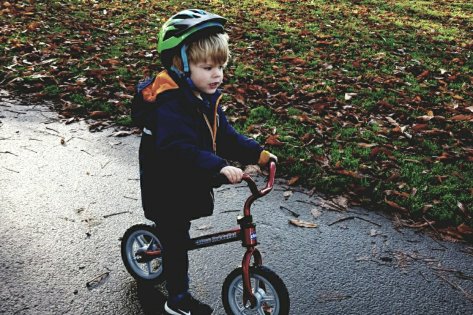Lonely
That’s I how I felt!
It was the feeling of being left behind. The feeling of everyone else being part of a crowd that I did not belong to and could not belong to. We didn’t have the criteria to go along with the crowd. The crowd whose children were running around together, being surprised by new adventures, making their first friendships, talking and conversing with each other in a natural untaught way.
There are so many feelings that overwhelm you when you realise your child is not “the same” as everyone else’s. There are feelings of fear, the unknown, anxiety, hope, upset, stress, and sadness. But the feeling that trumped it all for me, in the beginning, was loneliness.
My group of friends who continue to be everything to me, handed me words of reassurance, “Everything is going to be ok” and “I am here for you” and “He will catch up”. These were the phrases they recited, in the way that every friend would do. My friends have continued to be there for me. They have celebrated our achievements, and they have been a shoulder to cry on when I have had no where to go. But they were also as knowledgeable in autism as I was at the time, when I was beyond clueless.
My friends went on outings together and sat on the side catching up with a cuppa and cheeky piece of cake. Their children ran around within their line of sight. They were probably having the normal parental stresses you would expect, like checking where their child was at all times, and concerns if they fell or lost their friends. But they looked relaxed and enjoying the world they lived in and the progression their child made, in how it was expected to be made.
I often sent excuses to these catch-ups. It was easier than trying to explain that Rhys wouldn’t enter the location they had planned. Or try and describe the meltdown he had experienced the week before, at the entrance, not even managing to get into the foyer. The failure I felt inside not knowing why or how to solve an issue I did not know existed. The embarrassment from people staring at me and me not knowing what to do to rectify the situation, with my main focus being on getting the hell out of there.
In the occasions that I could get Rhys into different establishments, I was not the parent sitting on the side sipping a cup of tea and talking about the latest gossip. I was in constant sight of Rhys. I would panic about him physically pushing a younger child, not because he was violent, but because that was how he communicated – physically. I would be trying to apologise to a parent who was appalled about how Rhys had approached their child, explaining something I actually had know knowledge or experience about. I was too vulnerable to stand up and explain, finding myself apologising and edging away, because I was broken and unsupported in the mist that surrounded me.
At this time Rhys did not have a diagnosis. Autism was a word I had heard but knew just that, the word. I knew none of its context.
I was alone in a world of confusion, and could not even start to imagine how it felt for Rhys.
My friend’s children continued on the recognised path of development, and we moved in parallel, at snails pace. We were extremely behind and didn’t have the stepping stones they had to progress. We just drowned in a world we did not understand or know how to navigate through. I didn’t know where to look for help or information and support.
I stayed behind closed doors for a long time. Battling through the process with paediatricians, speech therapists, psychologists, occupational therapists and ENT surgeons. Just to name a few.
I was alone. This was a norm I had never heard about, with everyone else leading ‘normal’ lives, with the remaining being part of a secret autism society I could not get the membership card to.
It was when I went on the early bird course lead by the National Autistic Society that I started to connect with other parents, just like me. They were just normal families with the same struggles as us and roamed the same places we did (there was no secret group who were hidden away – they were among us). I had found people who I could talk to. People who understood the complexities of autism – from a parent’s perspective. We laughed about things that I would never share with my ‘non-autism’ friends, because they just wouldn’t get it.
I call them my Tribe. A group who are there to support, fight and laugh together over things that other ‘normal’ families do, but also the other things that only we understand and get.
In the UK, 1 in 100 people are on the autism spectrum, and there are many more that are undiagnosed. If you include families in these figures, you are looking at 2,8 million people in the UK with a first hand experience.
You are not alone if you or your child is autistic. Walk down the street and you are guaranteed to pass at least one autistic person. Search famous people and there are amazing individuals who are have changed or who are changing this world in way a no Neurotypical person can.
You will already know someone with a link to autism. I know this because every person I have spoken to about my son has either confirmed that one of their family members are autistic or a close friend or colleague.
Autism is everywhere, and the feeling of loneliness I felt, was short lived. As soon as I lifted my head up and spoke about it, a whole new world opened up for me, and in turn allowed me to enter into Rhys’ world and help him and broaden it into mine.
We need to raise the awareness of Autism. We are not alone in this. We are part of this and part of a world that needs a range of different minds to move forward. Different doesn’t mean unable, different means flexibility, perspective and progression in different ways. Ways that can achieve amazing things.
👨🦱👨👳♂👩🧕👧🧒👶







